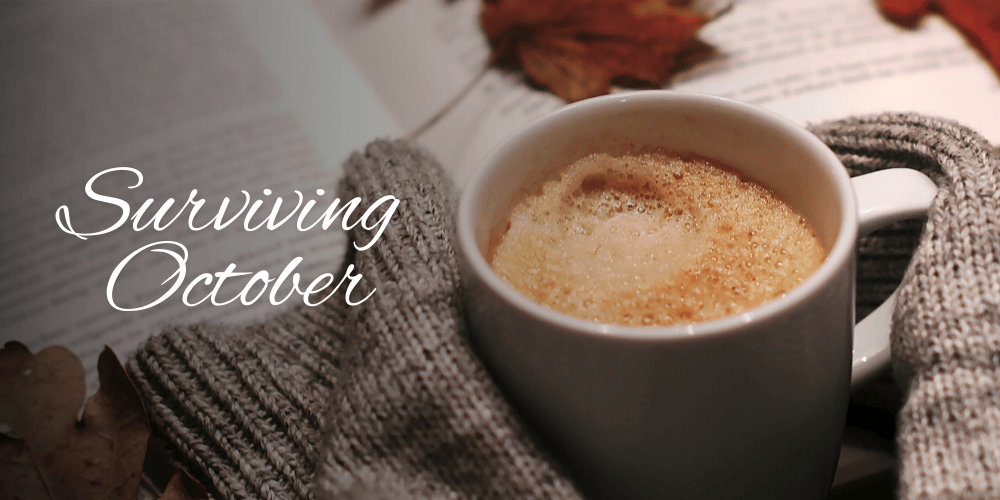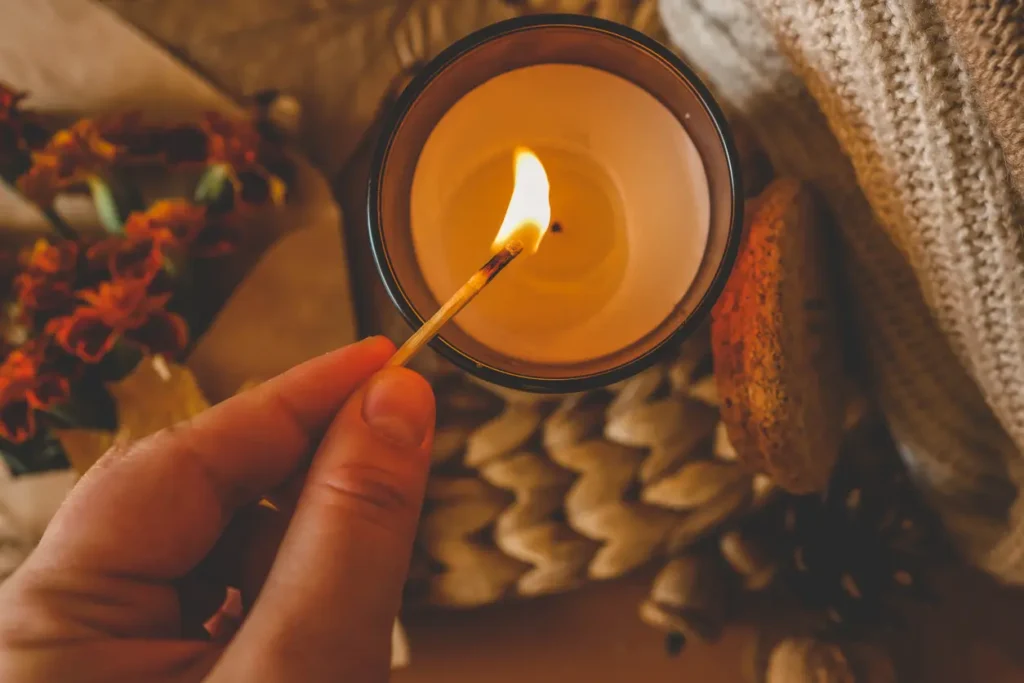
When October feels like a marathon
The autumn term is often described by teachers as the toughest stretch of the academic year. Spanning from September through to the Christmas holidays, it’s the longest continuous teaching period on the school calendar.
Unlike the summer term, which is broken up by bank holidays and lighter evenings, or the spring term with Easter breaks, autumn can feel like an endless cycle of dark mornings, heavy timetables, and mounting pressure.
For teachers, tutors, and supply staff, this time of year can be especially draining. Classroom demands intensify, administrative work piles up, and energy levels naturally dip as daylight hours shorten. Add in the seasonal shift, with colder weather and less time outdoors, and it’s no surprise many educators feel stretched thin before December even arrives.
Recent surveys confirm this: teacher wellbeing in the UK has dropped to its lowest level in five years, with large numbers of staff reporting stress, insomnia, and burnout.
But while the autumn term is demanding, it doesn’t have to be overwhelming. By making small but intentional adjustments to your daily routine, you can protect your wellbeing, stay energised, and maintain perspective. This guide explores practical self-care strategies, backed by psychology and lived classroom experience, to help you thrive, not just survive, the busiest term of the year.
Why the Autumn term feels tougher than others
Every term has its challenges, but autumn is uniquely difficult for several reasons:
It's the longest term of the school year.
Even though there’s a one-week half-term break in October, autumn still stretches from early September until mid-December, making it the longest term overall. That sense of endurance, especially in the darker months, is what makes it feel particularly demanding.
Shorter days take their toll.
Academic demands are at their peak.
Autumn is when schools lay the foundations for the year ahead. Teachers are busy setting expectations, introducing curriculum content, and supporting pupils’ transitions into new year-groups. For supply staff and tutors, it’s often a time of adjusting to new environments and workloads.
Festive build-up creates extra pressure.
Concerts, assessments, and school events pile up in November and December. While joyful, these add to an already demanding schedule.
UK research into teacher wellbeing shows that 77% of education staff report poor mental health due to work and 52% of teachers intend to leave the profession, quoting workload as a major factor.
Meanwhile, the “Working Lives of Teachers and Leaders” report shows full-time teachers work on average over 50 hours per week in term time.
Understanding why autumn feels harder isn’t about complaining – it’s about validating the challenge and recognising why extra self-care strategies are essential.
So how can you make this challenging term more manageable? Here are some strategies that really work:
Why your morning commute could be your secret weapon
For many teachers and tutors, the journey to and from school can take up a significant chunk of the day. How you spend that time can make a big difference to your energy and mindset. It’s tempting to fill the commute by scrolling through emails or social media, but studies show that excessive screen time is linked with increased stress and reduced wellbeing.
Instead, turn your commute into “me-time”. Try listening to a podcast or audiobook that uplifts and inspires. A motivational podcast, an educational series, or even some light fiction can set a more positive tone. Audiobooks allow you to engage without adding to your evening workload.
Some podcasts we love:
Dr Santos shares strategies for achieving greater happiness and contentment, offering practical ways to improve your mood and outlook. Listen here
Bite-size episodes featuring thought-provoking ideas from a huge range of topics, perfect for shorter commutes. Listen here

Top Tip
Download episodes or chapters in advance so weak signal or WiFi doesn’t spoil the mood.
The power of an evening reset ritual

One of the biggest challenges teachers face is switching off after work. With marking, planning, and other admin often creeping into evenings, the workday can feel never-ending.
That’s why creating a simple evening reset ritual is so powerful. This can be as simple as lighting a candle, changing into comfortable clothes, or making a warm drink as soon as you get home. These small actions signal to your brain that the workday is over, helping reduce stress and improve the quality of rest.
Research shows better sleep is tied to reduced stress and improved wellbeing. Laying down routines that separate work from rest can make a difference over time.
Small snacks, big energy difference
Long teaching days often mean irregular breaks. By the time lunch rolls around, you may already feel drained, and a sugar rush-then-crash isn’t helpful.
Keeping high-protein, portable snacks in your bag can be a game-changer. Nuts, protein bars, boiled eggs, or cheese sticks deliver sustained energy; even something like hummus with breadsticks works.
Top Tip
The magic of micro-breaks during your day
Teaching is a high-energy job. You’re constantly “on,” moving, talking, answering questions, adapting. It’s easy to go hours without pausing, but your body and mind need small resets.
Even two minutes to stretch shoulders, unclench your jaw, or take some deep breaths can help reset your posture, release tension, and improve focus.
Evidence from workplace wellbeing research suggests short breaks improve productivity and decrease stressSimple ideas:
- Set timer reminders for posture or breathing breaks
- Stand up and roll shoulders between classes
- Close your eyes for 20-30 seconds in a quiet corner
Finding your daily bright spot
When you’re in the thick of a long term, the difficult moments can easily overshadow the good. Anchoring yourself to one positive moment a day helps shift perspective.
This could be:
- A smile from a pupil
- A lesson that went better than expected
- Finishing a difficult task you’ve been putting off
Practice gratitude through a journal, sticky notes, or an app. Research shows gratitude exercises are linked with better health, more happiness and even living longer

Here are some of our favourite journal prompts you can use:
- What am I excited about today?
- What’s one small comfort (a hot drink, warm bed, fresh air) I appreciated this morning?
- Who has helped me (directly or indirectly) today?
- What made me smile or laugh today?
Why you need a teaching buddy
Teaching and tutoring can sometimes be isolating, particularly in supply or freelance roles. Having a buddy system gives emotional support and accountability.
Check in with another teacher once a week, for a chat, coffee, or even a voicemail. Sharing frustrations, ideas, or simply recognising you aren’t alone helps reduce stress.
Evidence around teacher wellbeing in the UK shows that feeling supported by colleagues and the school environment is a strong predictor of resilience and job satisfaction.
If you’re struggling to find an in-person community, try online groups. Facebook and Reddit have teacher groups who can offer advice and support.

Gentle movement for evening wind-down
Making weekends actually restorative
Weekends often vanish under chores, errands, or catch-up work. While those are necessary, they shouldn’t be the only thing you do with your time off.
Deliberately plan one restorative activity each weekend: reading, a hobby, time outdoors, or simply a cosy movie. Something you look forward to, not just tasks to tick off.
You don’t even have to wait for the weekend. Plan activities for the weeknights to give yourself something to look forward to; board game night, dinner with friends, going to the cinema. It doesn’t have to be something extravagant, just a fun activity to break the week up.
Recharge time is important for mental health, resilience, and sustaining motivation across the long autumn term.

Making It through the Autumn term to December
The autumn term is long, intense, and at times overwhelming. But by weaving in small daily rituals, you can maintain balance and protect your wellbeing.
Start with one strategy this week. Notice how even small shifts can help your energy, mood, and perspective. When December arrives, you’ll look back not just proud of surviving the longest term, but stronger, more resilient, and ready to enjoy the holidays.


